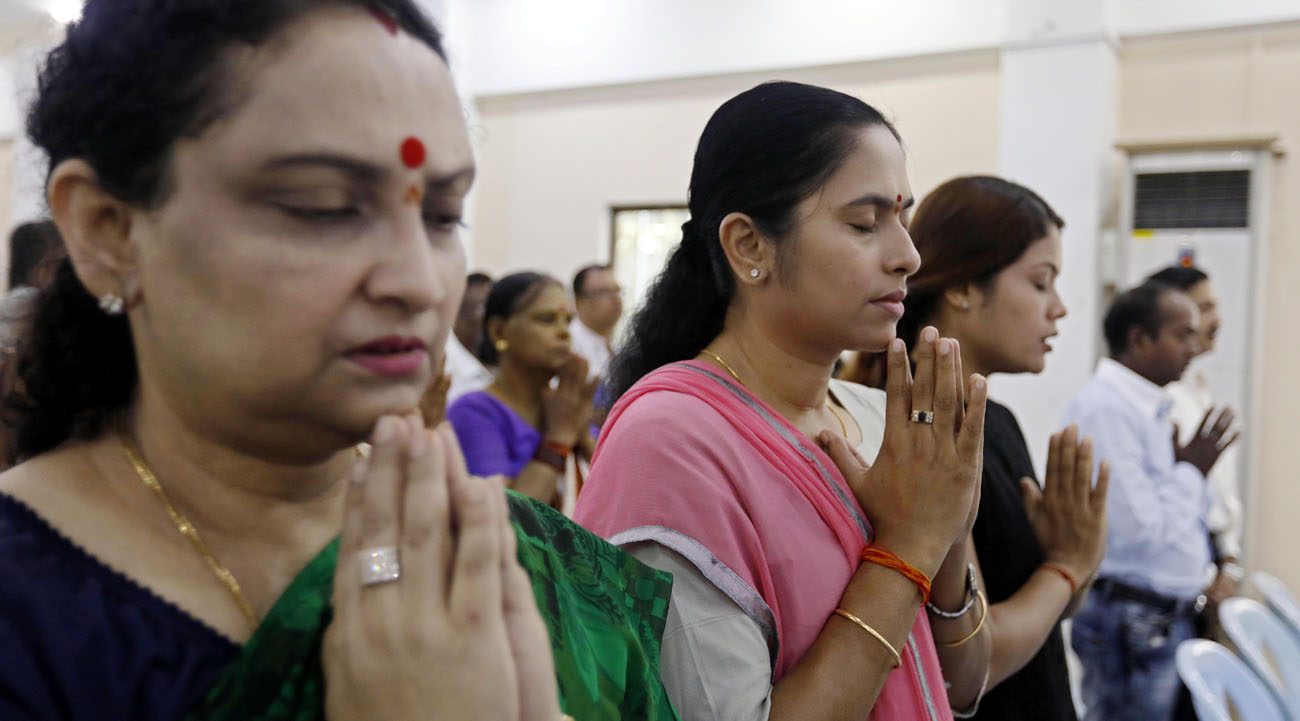VATICAN CITY (CNS) — Christians and Hindus are bound by their belief in human dignity and share a responsibility to help those in need, said the secretary of the Pontifical Council for Interreligious Dialogue.
Members of both faiths have a “moral duty to care for the vulnerable,” which is rooted in the belief “that we are all God’s creatures and, as a result, brothers and sisters, equal in dignity, with responsibility for one another,” Bishop Miguel Ayuso Guixot, secretary of the council, said in a written message to Hindus released Oct. 31 by the Vatican.
“A healthy awareness of our common human condition and our moral duty toward others inspires us to promote their cause by doing all that we can to alleviate their sufferings, defend their rights and restore their dignity,” he said.
[hotblock]
Bishop Ayuso extended his best wishes to the world’s 1.1 billion Hindus for the feast of Diwali, a three-day religious festival, which begins Nov. 7 in most parts of the world. The festival focuses on the victory of truth over lies, light over darkness, life over death and good over evil.
Those who suffer due to poverty and violence, as well as those who are “socially, religious, culturally and linguistically marginalized and excluded” are often discarded and ignored “by a society increasingly indifferent and even callous in the face of human needs and sufferings,” Bishop Ayuso wrote.
However, he added, in the face of their sufferings, “Hindus and Christians alike can engage in efforts to defend, protect and assist them.”
“Greater efforts, inspired by a sense of solidarity, are needed so that they can feel the presence of brothers and sisters who are concerned for them, and, by opening the doors of their hearts and lives, make them feel like friends and family,” he said. “In the end, the true measure of civilization of any society is the way it treats its most vulnerable members.”
By helping the poor and the oppressed, Bishop Ayuso said, Christians and Hindus can “cultivate a culture of care and concern” so that “no one feels unwanted, unloved, ignored or left out.”
“As believers grounded in our own respective spiritual traditions,” he said, “and as individuals with shared concerns for the well-being of all, may we join hands with the adherents of other religious traditions and all people of goodwill, and make collective and concerted efforts to secure a joyful present and a hopeful future for our vulnerable brothers and sisters!”
PREVIOUS: Pakistan court sets aside death sentence for woman convicted of blasphemy
NEXT: East Timor government blocks president’s planned visit to Vatican



Share this story